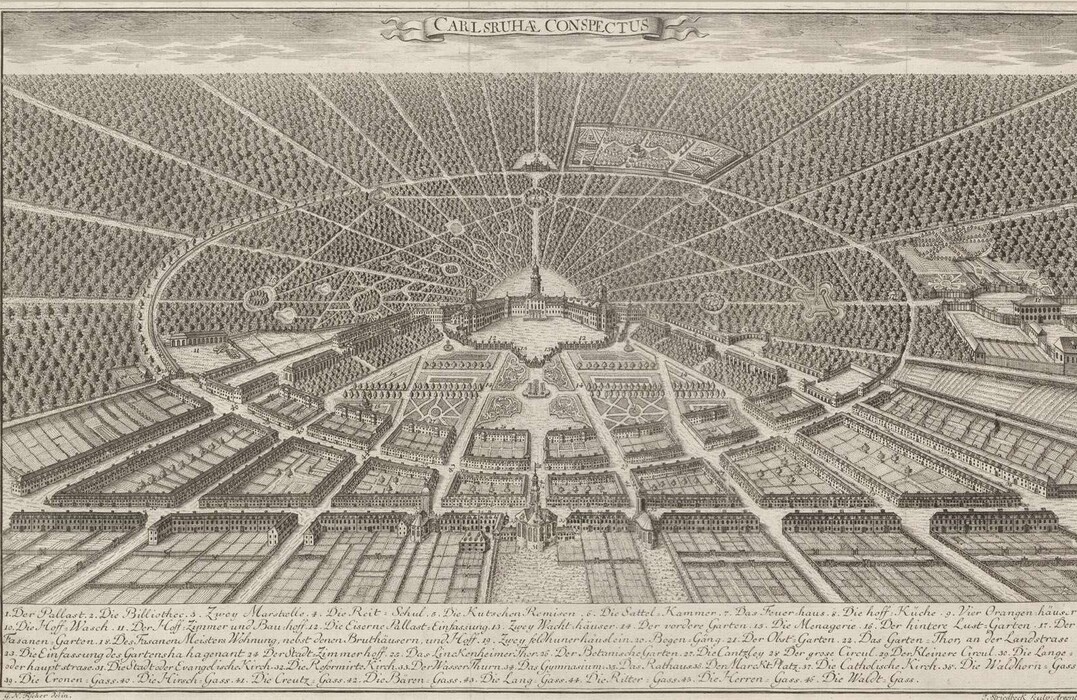Welcome to the Department of History
About Us
As a branch of the Institute of Technology Futures, we contribute research results of technology and environmental history to the social debates on future issues. We define Technology Futures as the ways in which societies communicate about the future uses of technology - whether linguistically, with images, or by emotive persuasion. The historical perspective can thus uncover long-term continuities or ruptures in communication about future technological developments.

The winter semester has begun!
On Monday, Oct. 21 2024, the first semester students are welcomed into the study program European Culture and History of Ideas (for the BA and the supplementary subject History: 11.45-13.00, for the MA 13.00-14.00, both in building 30.91, R012).
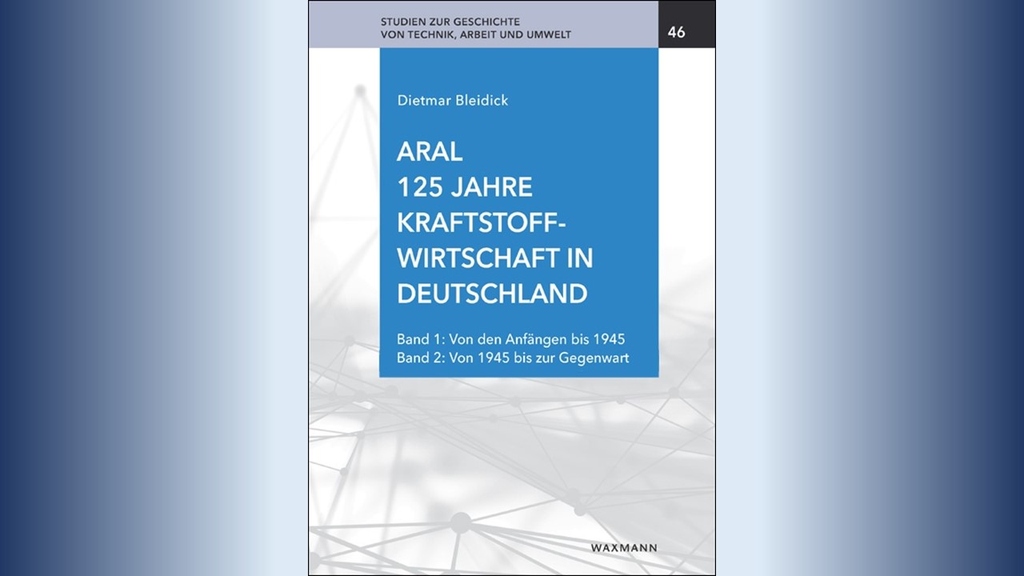
In the series Studien zur Geschichte von Technik, Arbeit und Umwelt, edited by Marcus Popplow and Torsten Meyer, the volume 46 Aral. 125 Years of the Fuel Industry in Germany by Dietmar Bleidick has been published. The two-volume edition traces the 125-year history of the industry for the first time using Aral as an example. In addition to company and product development, the filling station business and the brand, the focus is on social and political conditions, the effects of mass motorization and, last but not least, the price of fuel.
Read more by clicking here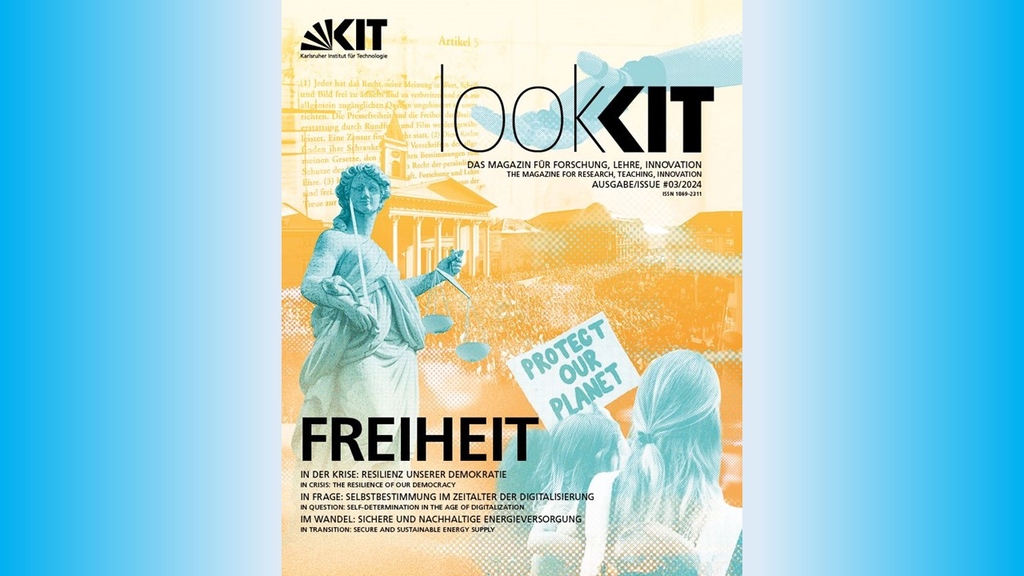
In the current issue of lookKIT, Rolf-Ulrich Kunze comments on the current crisis of democracy and talks about the dangers to freedom and the rule of law posed by right-wing populism (p. 10). On p. 56, Sophia Merkel talks about her family history research; the link to a podcast on the topic can be found on p. 43. In the forum on KIT's approach to right-wing political extremism under the motto "Never again!", Désirée Schauz discussed the attitude of scientists during the Nazi era (p. 33).
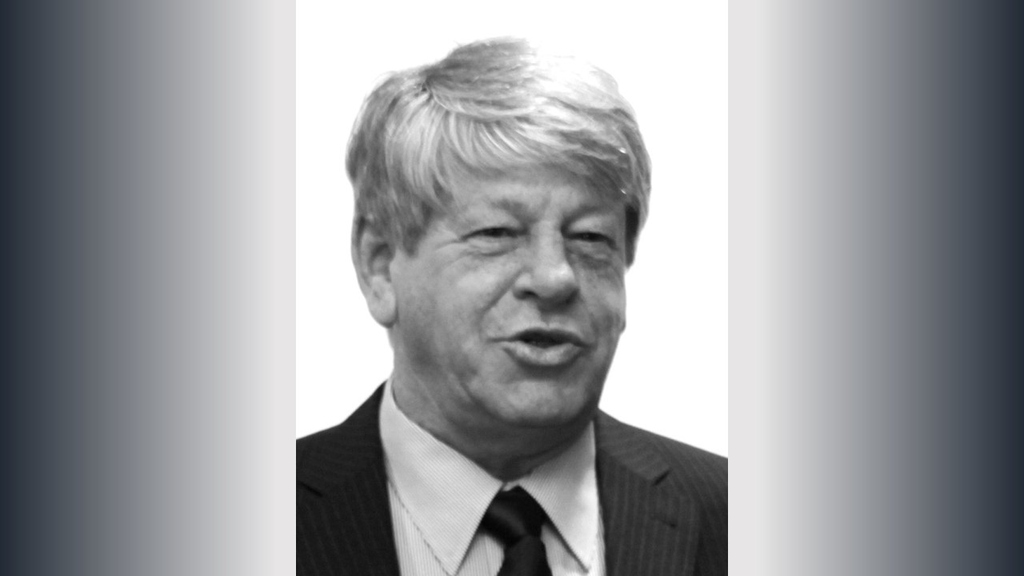
Prof. Dr. Wolfgang Altgeld (1951-2024)
The Department of History mourns the loss of former Institute member Professor Dr. Wolfgang Altgeld, who passed away on September 27, 2024. Wolfgang Altgeld was a historian of modern politics and Italy.
Link zum Text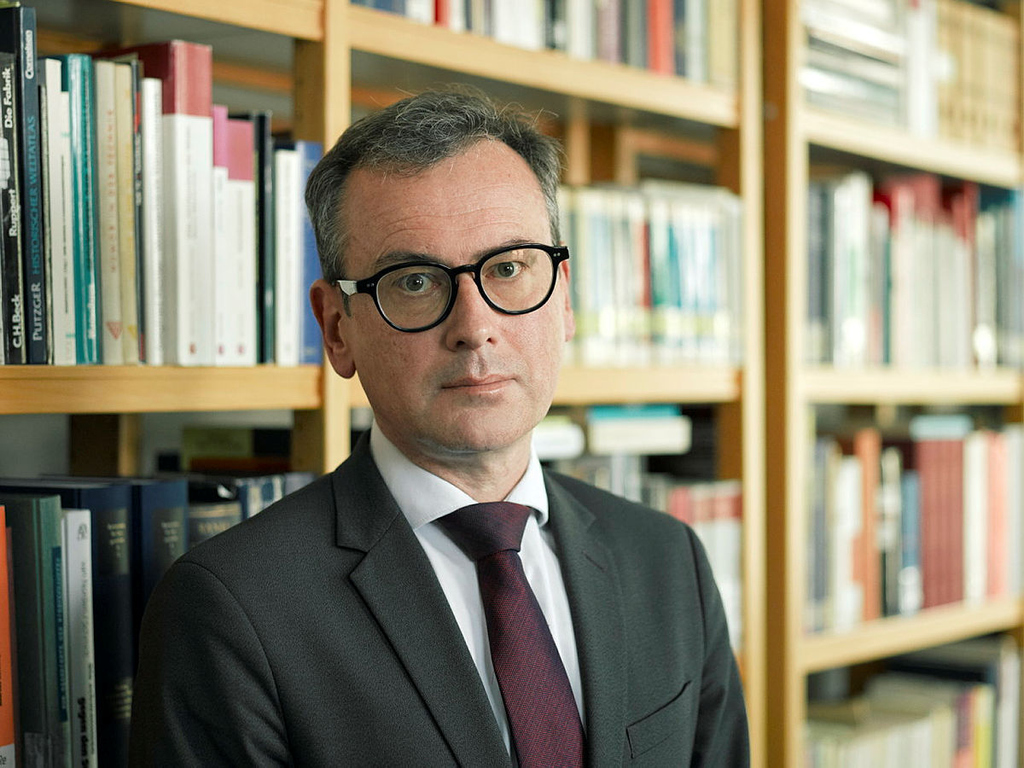
Rolf-Ulrich Kunze spoke on the topic of "Failing unity, failing democracy?" at the Ettlingen ceremony to mark the Day of German Unity. The article was published in the Badische Neueste Nachrichten on October 3, 2024 and is available online.
Read more by clicking here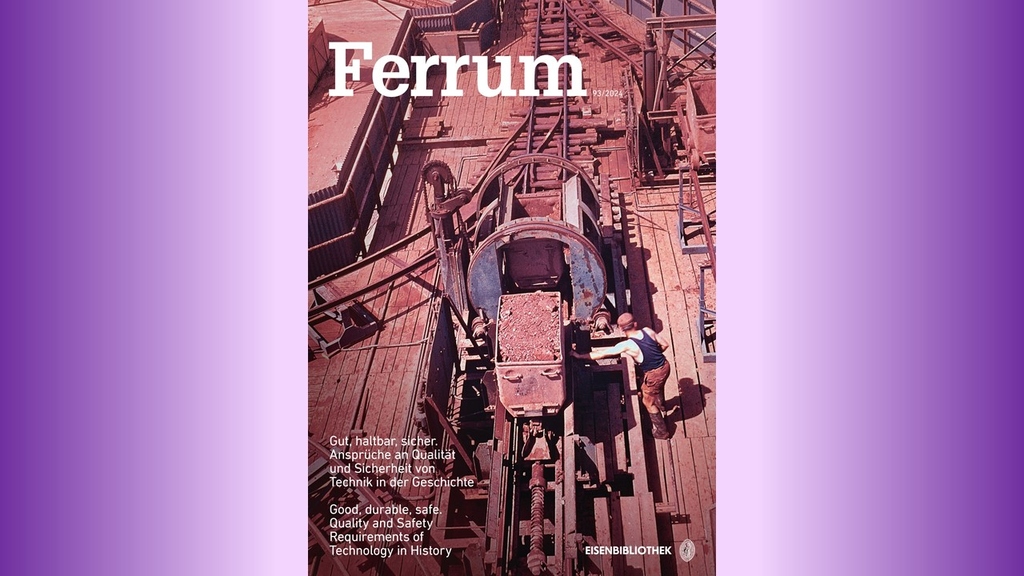
The new issue of the journal Ferrum on the topic Good, durable, safe. Demands on the quality and safety of technology in history is available open access. As a member of the scientific advisory board, Marcus Popplow was jointly responsible for the conception of the preceding conference at the Iron Library (Schaffhausen), Nicole Hesse has a contribution in the issue.
Read more by clicking here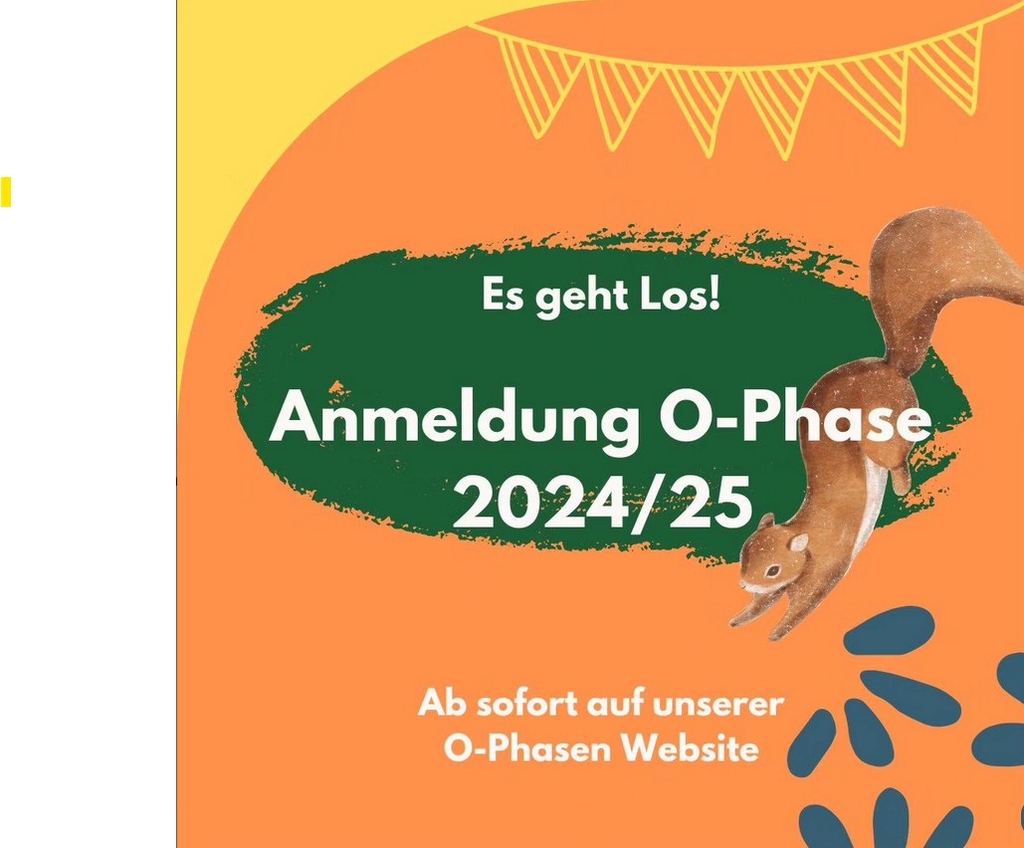
During the orientation phase one week before the start of the semester, the GeistSoz student council will provide you with all the important information about commencing your studies.
Read more by clicking here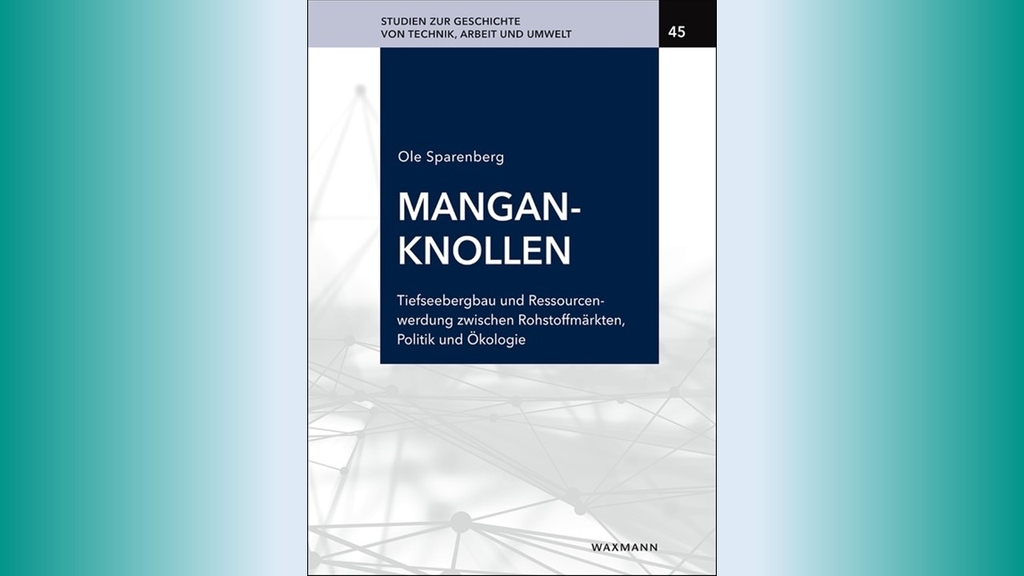
Ole Sparenberg is the first to examine the history of manganese nodules from their discovery in 1873 to the present day. This study shows why an economic interest in these minerals from the deep sea developed from the 1950s onwards, culminating in mining tests in 1978 before the projects were discontinued. It was not until the 21st century that interest in deep-sea mining revived, but today it is increasingly being met with discussions about the ecological consequences.
Read more by clicking here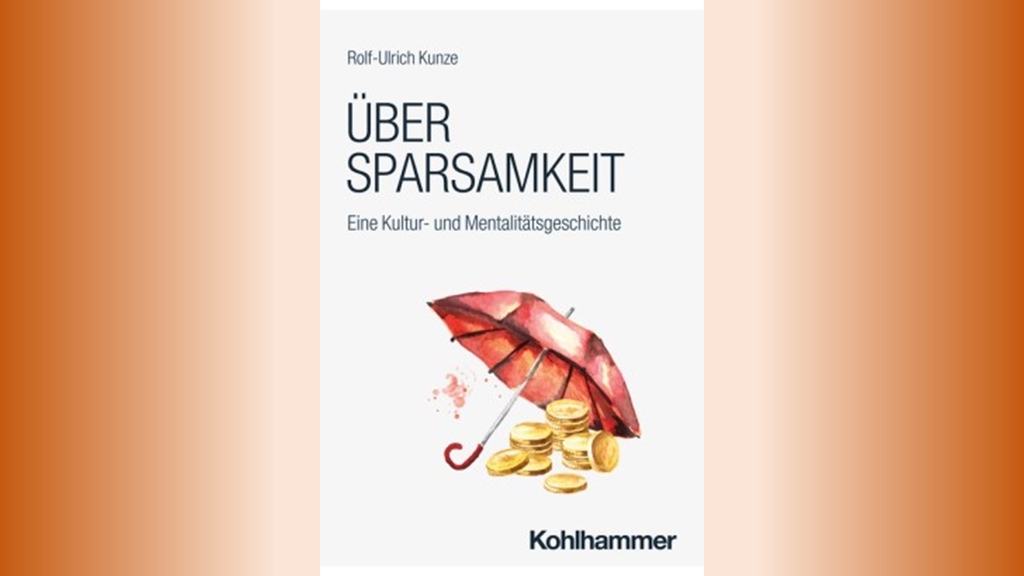
The current monograph "Über Sparsamkeit. A history of culture and mentality" by Rolf-Ulrich Kunze has been published by Kohlhammer. Using numerous sources - from cookbooks, advertising and media reports to advice literature - the book examines how ideas about thriftiness have developed in West Germany since 1950 and how they have become part of everyday life.
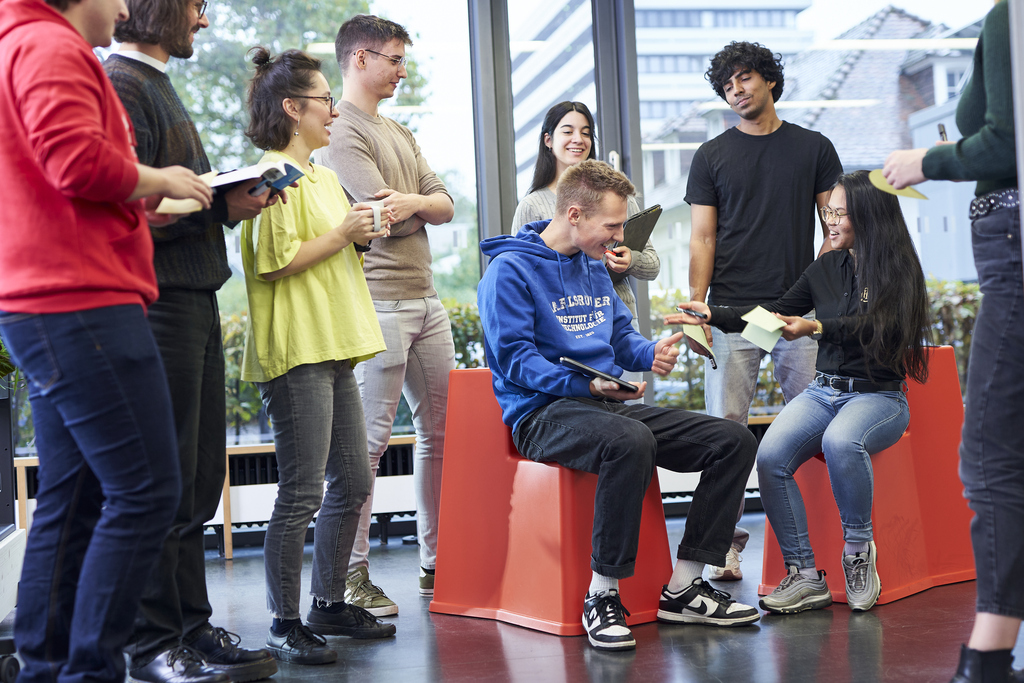
This year, Désirée Schauz from our team is once again participating as a lecturer at the international summer school "Introduction to Conceptual History", which takes place in Helsinki in August. The summer school is organized annually by "Concepta" as part of the "History of Concepts Group". It offers an in-depth introduction to the theory and methods of the history of concepts and ideas and is also aimed at doctoral students. Désirée Schauz's teaching units will focus on the application of the history of concepts in the fields of science and technology.
Read more by clicking here
In the coming summer semester, there will again be numerous new seminars and lectures in the EUKLID program. These can be accessed at Campus Management, on the page Courses of the Department of History as well as via ILIAS .
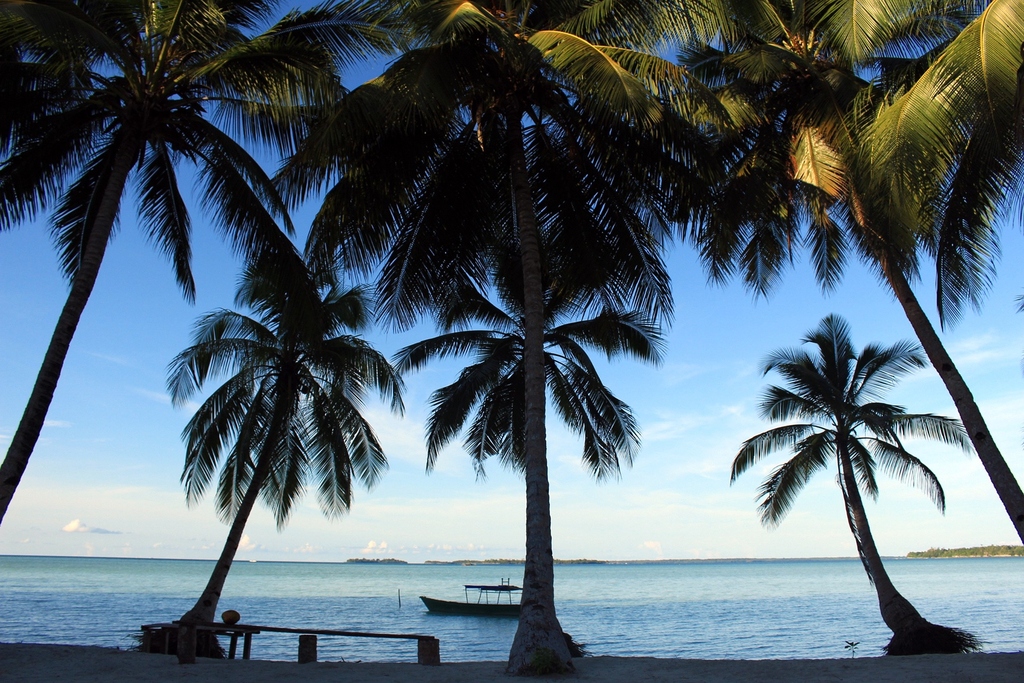
Planning to study abroad requires lead time - you can already find out about the requirements for a semester abroad next year: Information on studying overseas can be found here.
An online appointment on ERASMUS+ will take place at KIT-Internationales via ILIAS: 02.10.2024, 16:00-17:00.
The Faculty GeistSoz offers an information session on Erasmus+ on November 20 (14:00, in room 110 in the Franz-Schnabel-Haus).
You can find all important information via the following link.
Read more by clicking here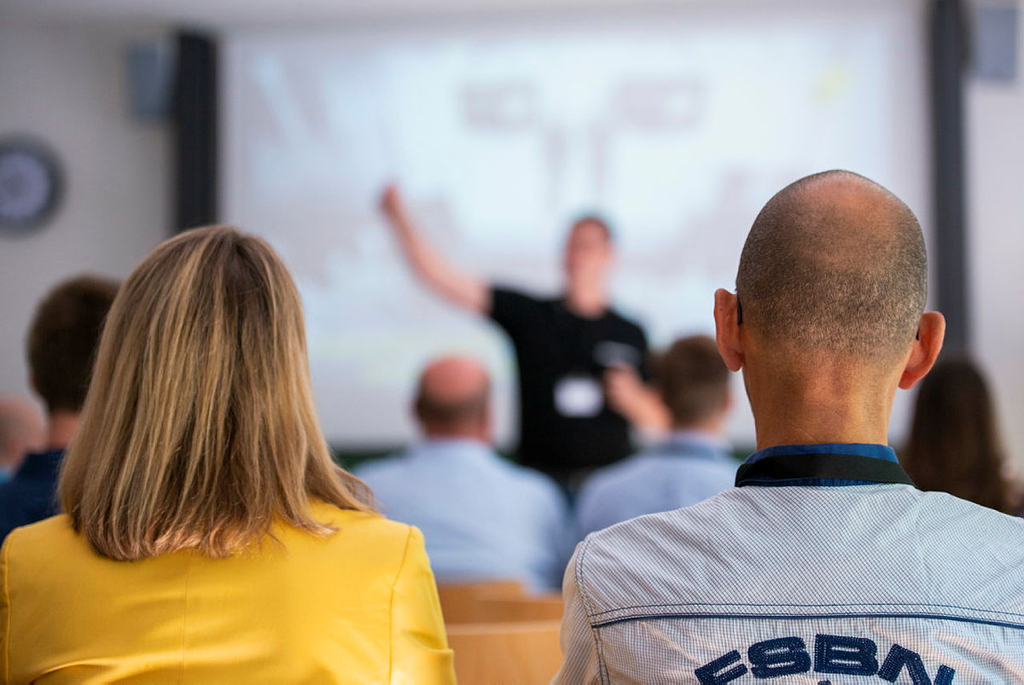
On Monday, September 23, 2024, PD Dr. Stefan Poser will give an online lecture at the University of Hanover on the topic From Crime to Museum Object - Technical and Cultural History of Graffiti (History of Technology). The host is the AK Technikgeschichte of the VDI in Hanover.
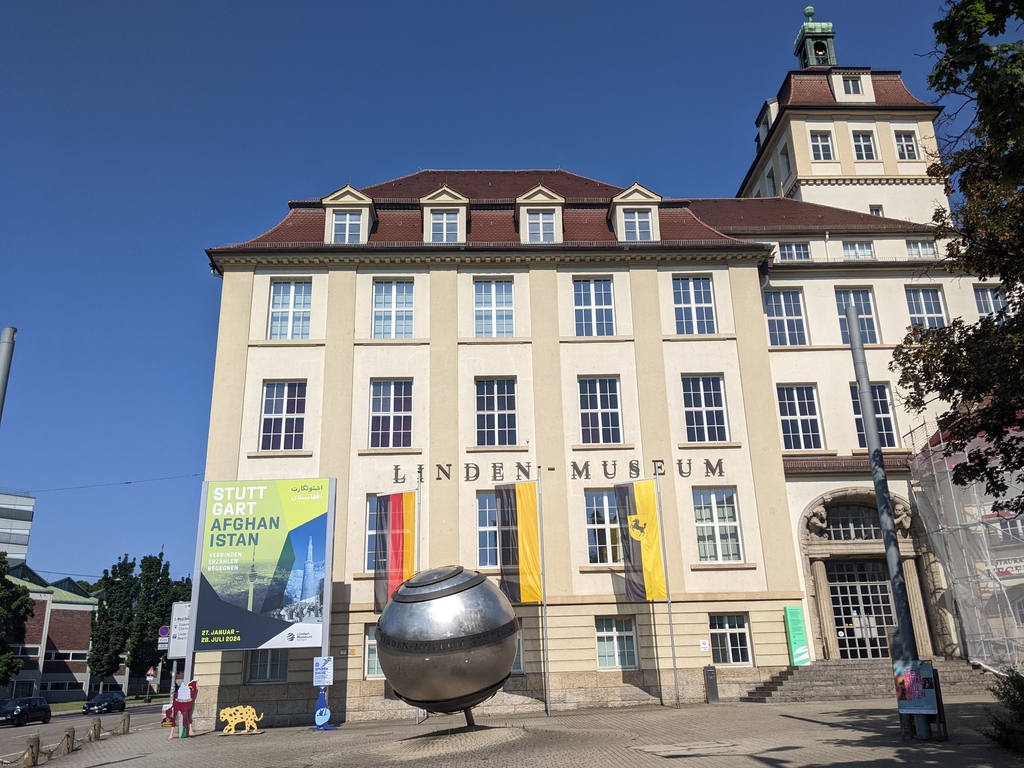
On July 20, Andrea Acle-Kreysing and the participants of her seminar visited the exhibition "Stuttgart-Afghanistan" at the Linden-Museum in Stuttgart, which deals with the dynamics of knowledge exchange and cultural mediation. Many thanks to the GeistSoz student council for the financial support and to our wonderful museum guide, Ms. Hüge!
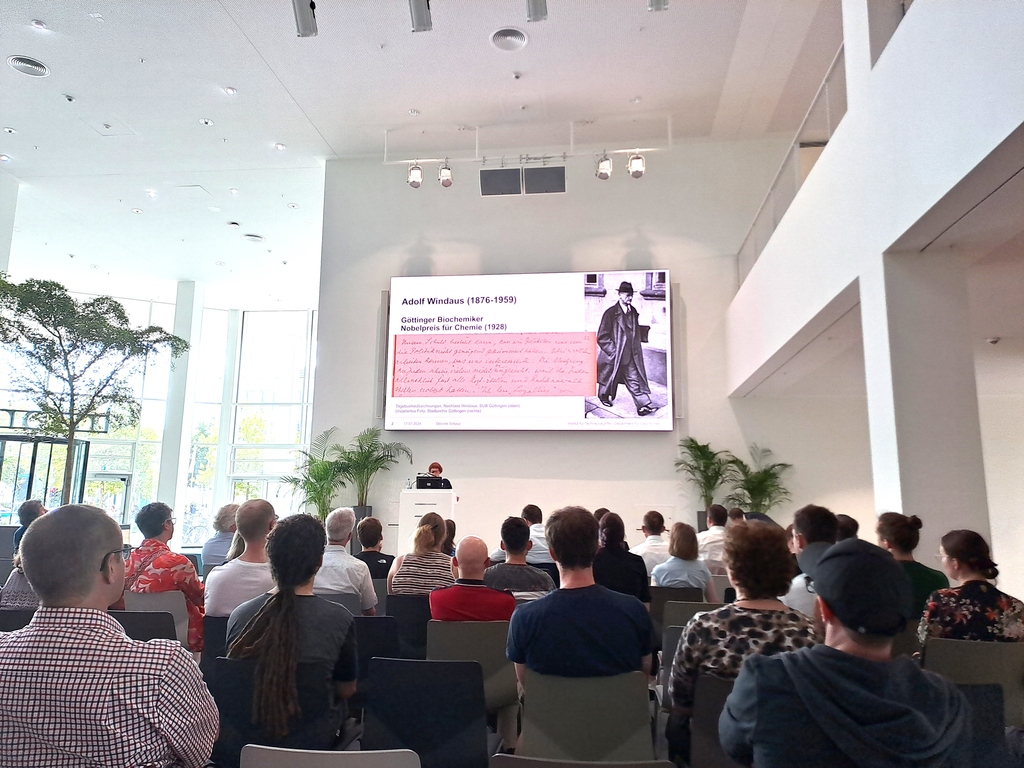
In the event "What does 'never again' mean here?", which took place at informatiKOM at KIT on July 17, presentations and a subsequent panel discussion dealt with the questions of how extremism can be prevented in our society and what contribution universities can make to this. Désirée Schauz participated on behalf of the Department of History with the lecture "Mythos 'unpolitische Wissenschaft'. Universities in the Weimar Republic and at the beginning of Nazi rule". Using selected historical examples, she highlighted the influence that nationalist, "völkisch" and anti-Semitic movements had on research and universities in Germany in the early 20th century.

On the 80th anniversary of the assassination attempt of July 20, 1944, Rolf-Ulrich Kunze gave a lecture entitled Wehrhafte Demokratie statt später Widerstand. How do we defend our constitutional state? This was followed by a panel discussion. The event took place on July 10, 2024 at the Generallandesarchiv Karlsruhe. The lecture is available as a podcast on Deutschlandfunk Nova Hörsaal via the following link.
Hear more by clicking here
With her seminar on textile history, Sophia Merkel visited the Technoseum in Mannheim. Technical processes, including spinning and weaving, are taught "hands-on" and demonstrated on historical machines in this istitution. We would like to thank the Geistsoz student council for funding the excursion!
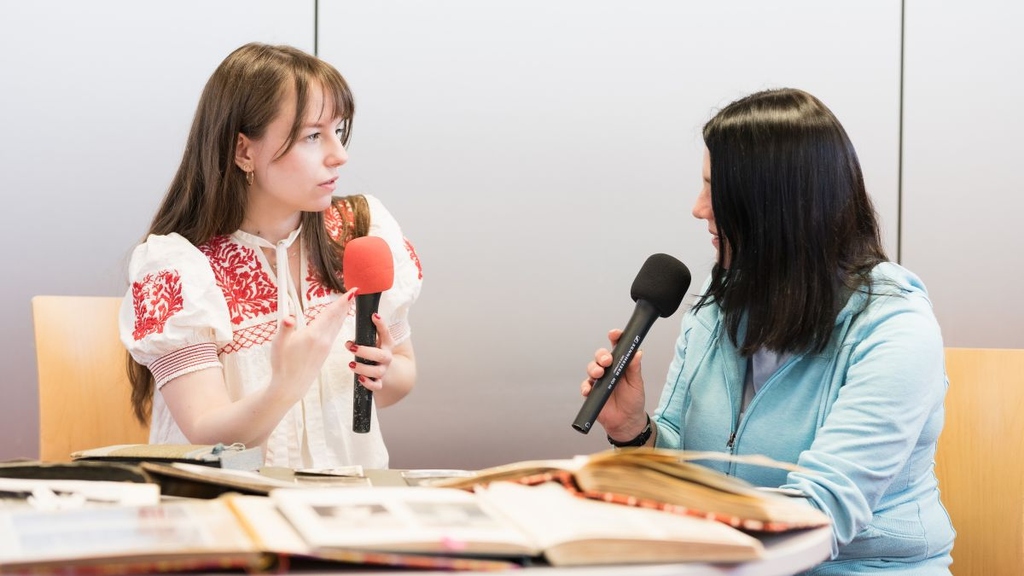
How can photo albums be used as historical sources? What role does the subjective play in narratives and how can they be categorized in terms of source criticism? Sophia Merkel (left) talks to Gabi Zachmann about the family as a topic of historical studies in the KIT interview podcast "Nachgefragt - wissen wie's läuft".
Hear more by clicking here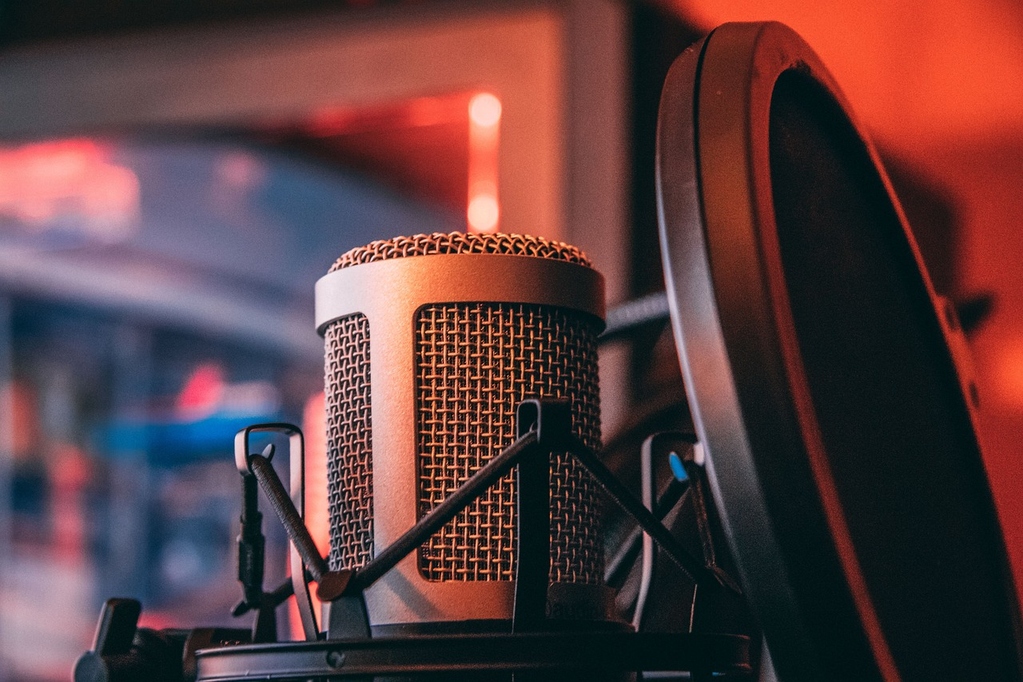
Quite a few people feel overwhelmed by the disruptive, i.e. all-changing possibilities offered by artificial intelligence. In an interview with Stefan Fuchs, Marcus Popplow takes a look at the history of technology and the exuberant fantasies, but also the Cassandra cries that are currently being raised in the debate about the advantages and disadvantages of artificial intelligence. The interview appears in the KIT Campus Report series.
Hear more by clicking here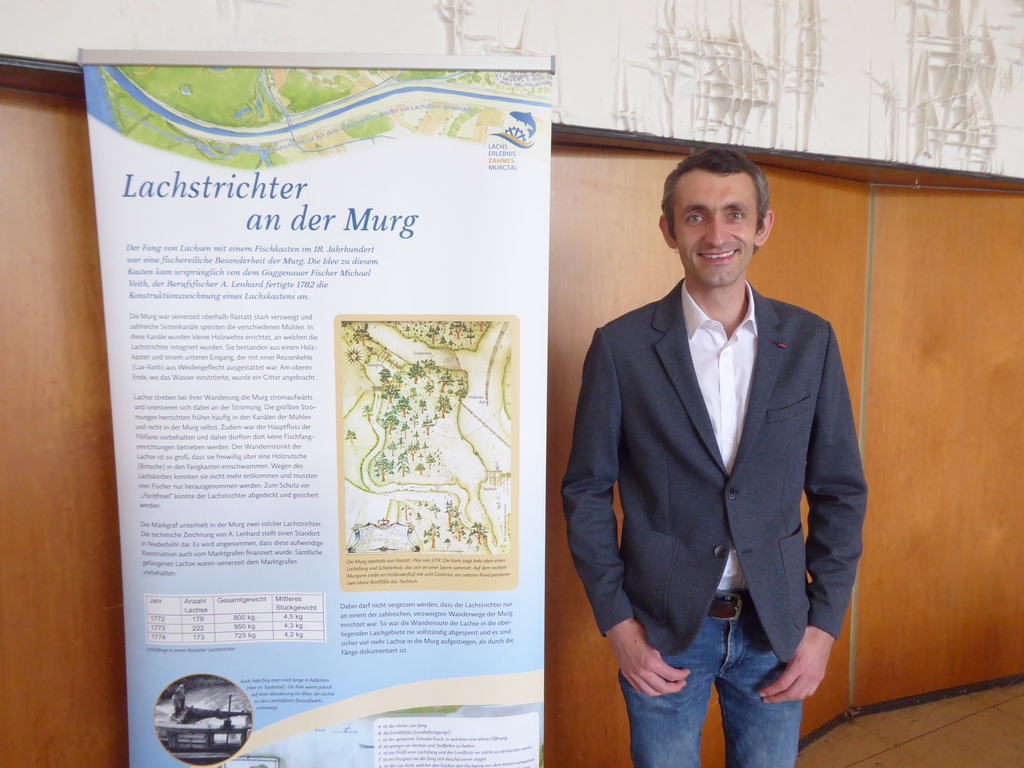
As part of the renaturation of the Murg river by the fisheries authority at the Karlsruhe Regional Council, Tilman Wagle (photo) researched historical fish stocks from the Middle Ages to industrialization. His findings were incorporated into the design of the panels for the new salmon adventure trail, which was opened at a ceremony in Forbach on July 11. The official press release from the regional council is linked here. Wagle is currently working on his research results for a dissertation.
Read more by clicking here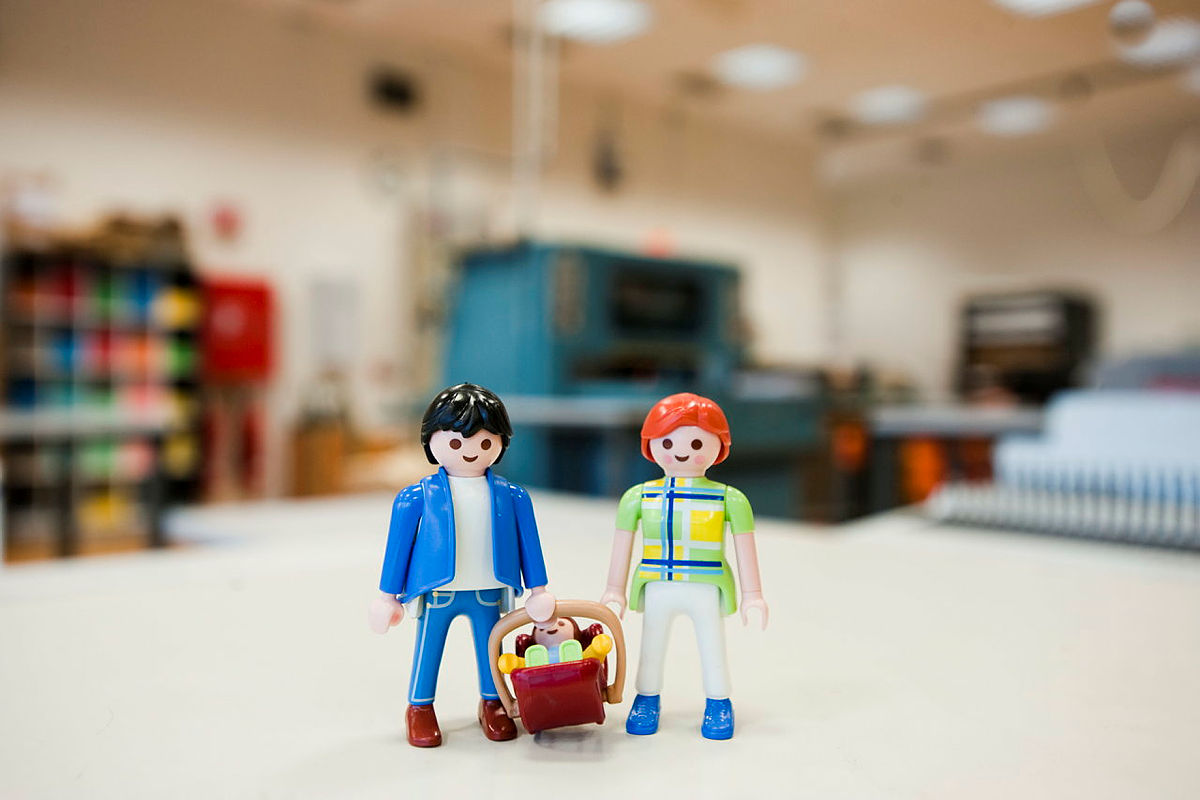
A recent statement by the Gesellschaft für Technikgeschichte e.V. (Society for the History of Technology) states that the Academic Fixed-Term Contract Act has not contributed to a lasting improvement in precarious working conditions in academia over the last 20 years. It warns that the regulations in practice, especially in recognized "small subjects" such as the history of technology, are paradoxically increasingly tantamount to a professional ban for many academics. Details of the different assessments can be found here:
- Information from the BMBF on the Academic Fixed-Term Contract Act
- Comments from the German Association of Historians
- Comments from the Society for the History of Technology (PDF)

Would you like to know what the EUKLID degree program is all about and what studying history and philosophy looks like? Then you've come to the right place! Building 30.91, Room 012, 11:00-11:30 h with Silke Zimmer-Merkle. Why not also listen to the event on the elective subject Technology Assessment, which takes place directly afterwards: "Sex Robots, Intimacy, and Ethics: A Case from the Field of Technology Assessment". Ethical sex work with robots - is it possible? In the taster lecture, the elective subject Technology Assessment will give a small taste of the diverse topics of TA research. The lecture language is English, 11:35-12:25 h with Bettina-Johanna Krings and Giovanni Frigo.
Read more by clicking here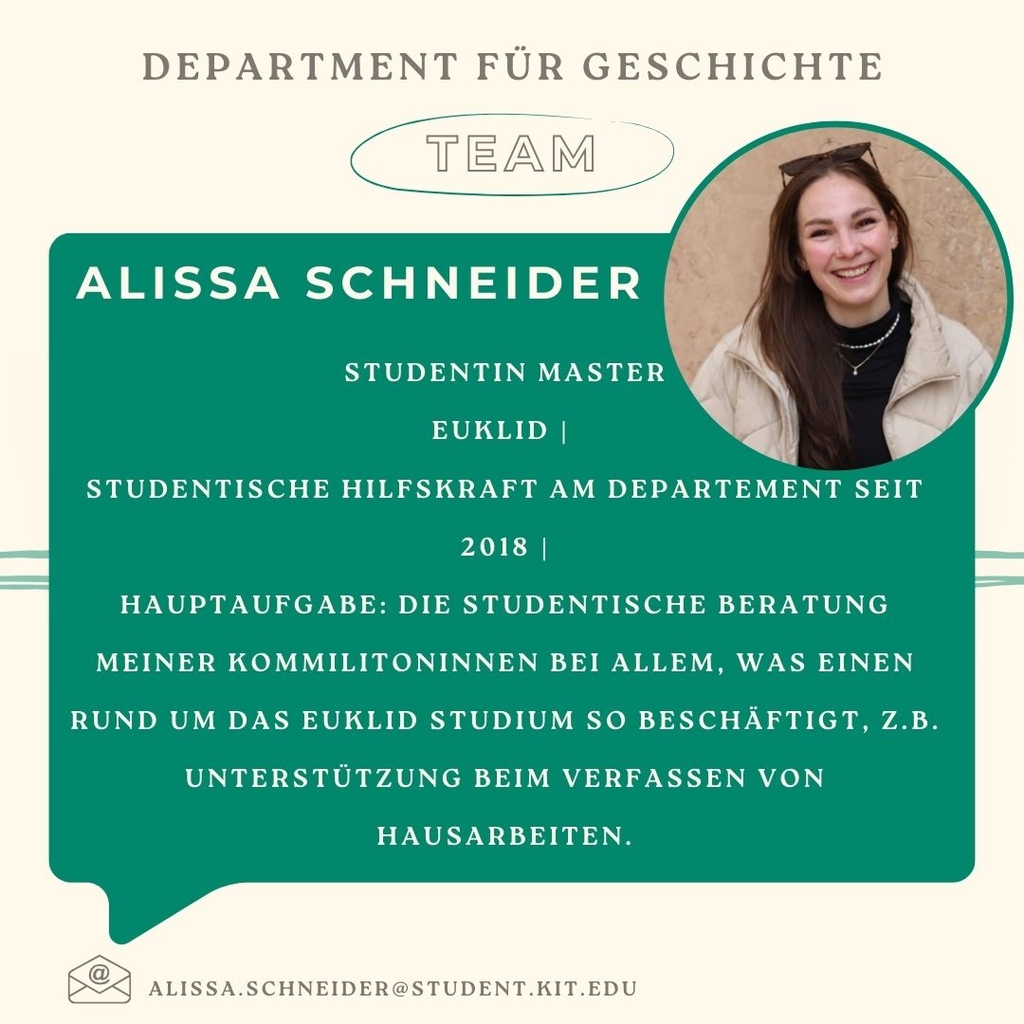
You can find us on Instagram @kitgeschichte. Among other things, we post news from the Department of History, introduce the members of our team in teaching and the administration and point out important events and dates.
More
In May 2024, the Grundgesetz will be 75 years old! To mark the anniversary, the Federal Ministry of Education and Research has decided to focus on freedom and democracy as the theme of the Year of Science 2024. But how has democracy developed in Germany? Contemporary historian and professor Rolf-Ulrich Kunze spoke to Campusradio about the long and complicated path to democracy in Germany.

In the Karlsruhe Underdogs podcast, EUKLID students Nicolas Novak and Martin Ullmann present an (unknown) historical biography from Karlsruhe's city history every month. The approximately one-hour episodes are published by Campusradio Karlsruhe. The women's rights activist Kunigunde Fischer and the railroad pioneer Emil Kessler have already been presented. Puzzle fans can also try out Novak's Mystery Places, the monthly historical quiz game from Campusradio.

Born in 1917, communications engineer Karl Steinbuch is considered one of the few German visionaries in computer science. In 1958, he became a professor at the Technical University of Karlsruhe, now the Karlsruhe Institute of Technology. However, when the reform movement at universities spread to Karlsruhe in 1968, Steinbuch showed increasingly clear sympathies for right-wing extremist ideologies. His biographical involvement in National Socialism became public: he had joined the SS at the age of 16. As a member of the Wehrmacht, he was involved in war crimes. KIT historian Anton Guhl has now dedicated the first detailed study to Karl Steinbuch.
Hear more by clicking here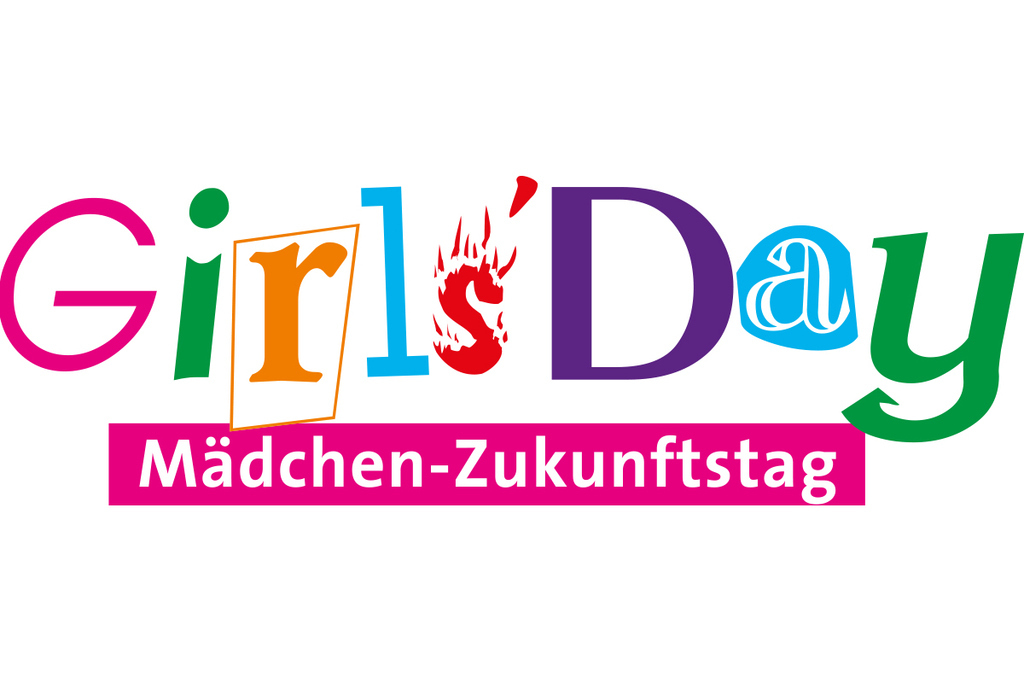
The "Girls' Day - Girls' Future Day" is a nationwide career orientation day for girls* from the 5th grade onwards. Girls' Day gives schoolgirls the opportunity to gain insights into professional fields that are rarely chosen by women - fields in the natural sciences, technology and humanities. The next Girls' Day at KIT will take place on April 03, 2025. Further information on Girls' Day 2025 can be found under the following link.
Read more by clicking here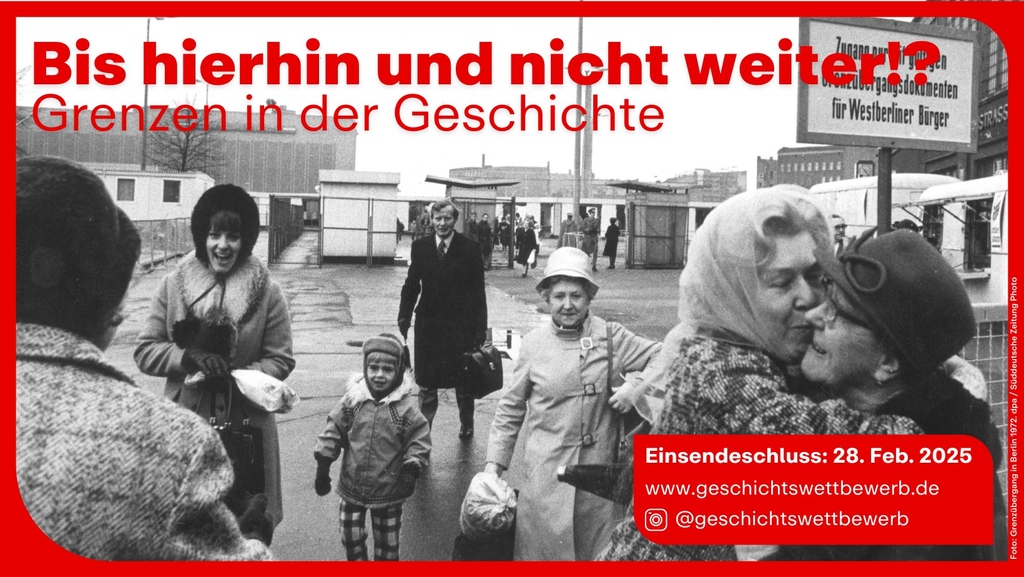
Tobias Markowitsch, seconded teacher at the Department of History, was successful with his students from the Bismarck-Gymnasium Karlsruhe in the Federal President's History Competition 2023 (video of the award ceremony).
More
... is the title of the current feature by Stefan Fuchs (ZAK) and Rolf-Ulrich Kunze on the occasion of the Science Year 2024 and the 75th anniversary of the German Constitution in the Campus Report of March 26. In the podcast "Gloomy prospects for the 20s of the 21st century " the KIT contemporary historian gives an assessment of the prospects for 2024.
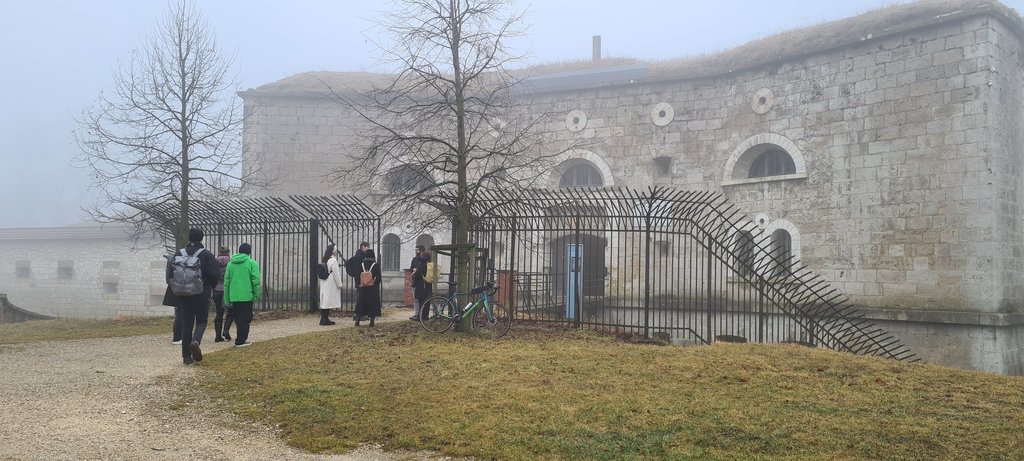
On February 10, Andrea Acle-Kreysing and Désirée Schauz and their seminar participants visited the Oberer Kuhberg concentration camp memorial in Ulm, one of the early concentration camps. Between 1933 and 1935, National Socialists detained opposition activists, primarily from the ranks of the Social Democrats and the KPD, in the cold and damp rooms of the former Ulm fortress. In her welcoming address director Nicola Wenge gave an overview of the history of the Ulm memorial and its diverse tasks. Angel Ruiz Kontara gave a guided tour of the historical site and the permanent exhibition. Using the example of a prisoner biography, the participants were given an insight into the memorial's source and research work. A tour of the special exhibition "'Man wird ja wohl noch sagen dürfen...': Zum Umgang mit menschenverachtender und demokratiefeindlicher Sprache" also provided an opportunity to discuss the relevance of the memorial's political education work to current events. The excursion was funded by the GeistSoz student council.
Link_moreThe round table with representatives from the fields of architecture, architectural history and urban and regional planning will develop perspectives for the refurbishment and extension of historic school buildings in line with conservation requirements. The focus is on two Dortmund school buildings from the decades around 1900, the preservation of which is desirable from both a conservation and ecological perspective. Wolfgang Sonne, TU Dortmund: The cultural-historical dimension using the example of the Kreuzschule monument in Dortmund (1913); Eva Reber, BDA: The conceptual dimension using the example of the study on the extension of Dortmund's Mörike elementary school (1891); Marcus Patrias, BDA: The structural dimension - "Durability in change" - school construction in an almost closed system; Thomas Eltner, TU Dortmund: The social dimension in the interplay of participating institutions, social challenges and political objectives; Moderation: Stefan Poser, Department of History(stefan.poser@kit.edu).
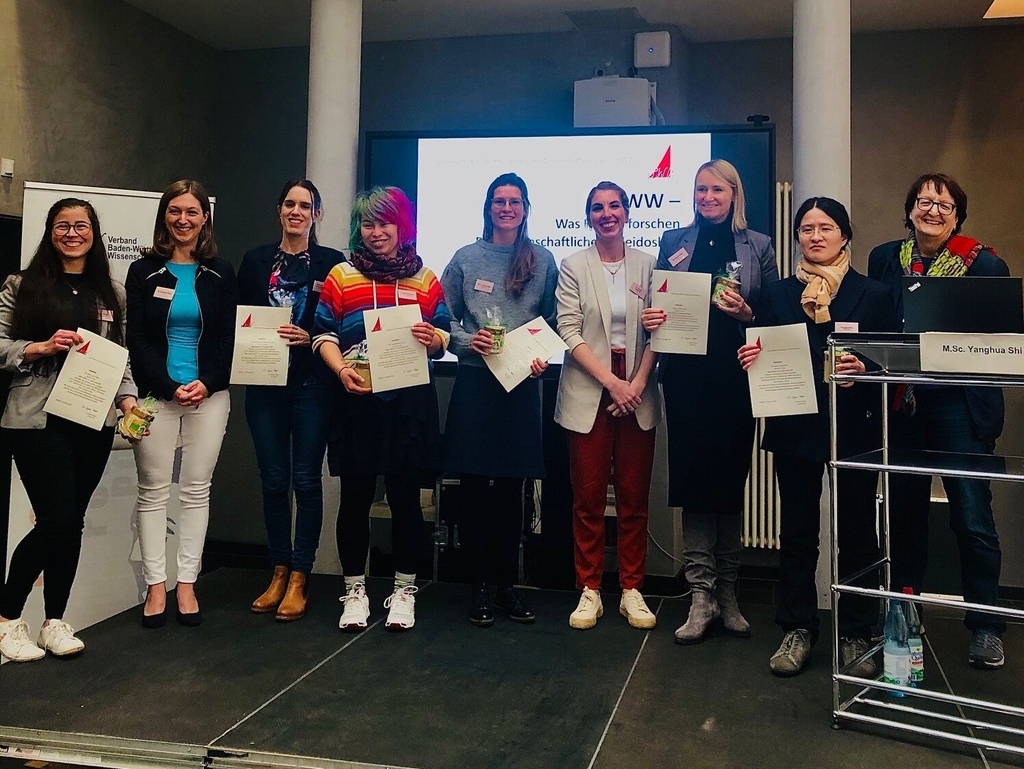
In November, the Association of Baden-Württemberg Women Scientists awarded this year's Maria Gräfin von Linden Prize in the categories of life sciences and humanities/social sciences at the Heidelberg Center for American Studies. Nicole Hesse (3rd from right in photo) was honored as one of four finalists in the humanities/social sciences for her research on wind energy use and its significance for current debates. Every two years, the event is dedicated to raising the profile of female research and excellence in Baden-Württemberg.
Read more by clicking here
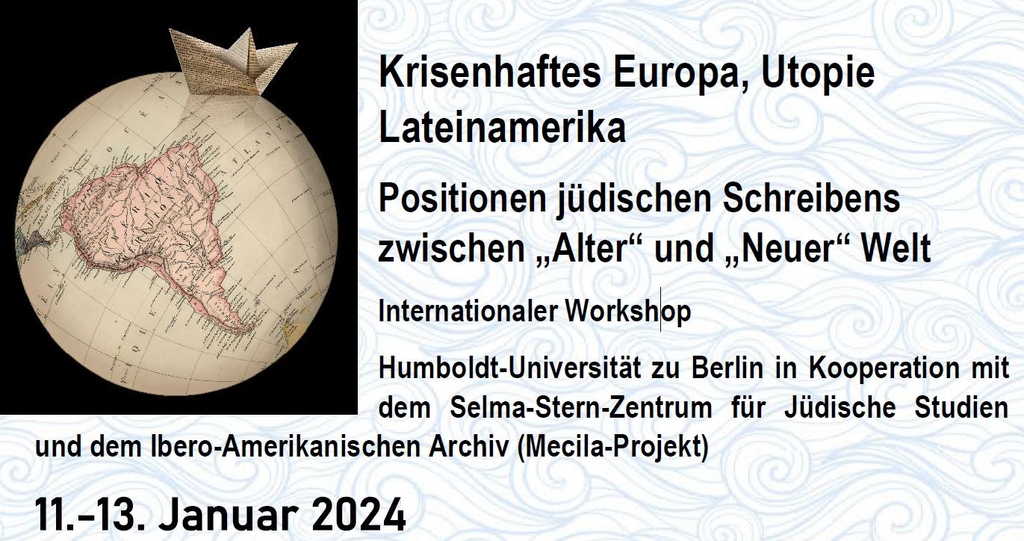
From January 11 to 13, an international workshop took place in Berlin, "Krise Europa, Utopie Lateinamerika. Positions of Jewish Writing between the "Old" and "New" World". The workshop was co-organized by Andrea Acle-Kreysing, who gave a lecture on the first German anti-fascist organization in Mexico and its fight against racism and anti-Semitism.
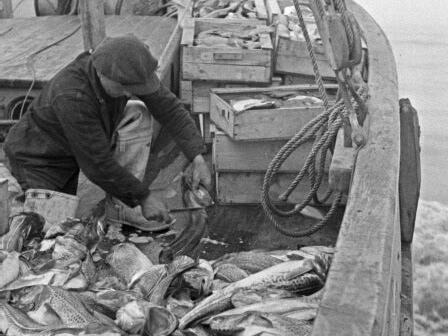
Technical innovations such as the steamship, the use of trawls and cooling with ice led to a new dimension in German deep-sea fishing as early as the 1880s. Ole Sparenberg gives an insight into the origins and problems of industrial fishing on the high seas in the BR podcast series "Alles Geschichte - History von Radiowissen". You can listen to the report via the following link.
Hear more by clicking here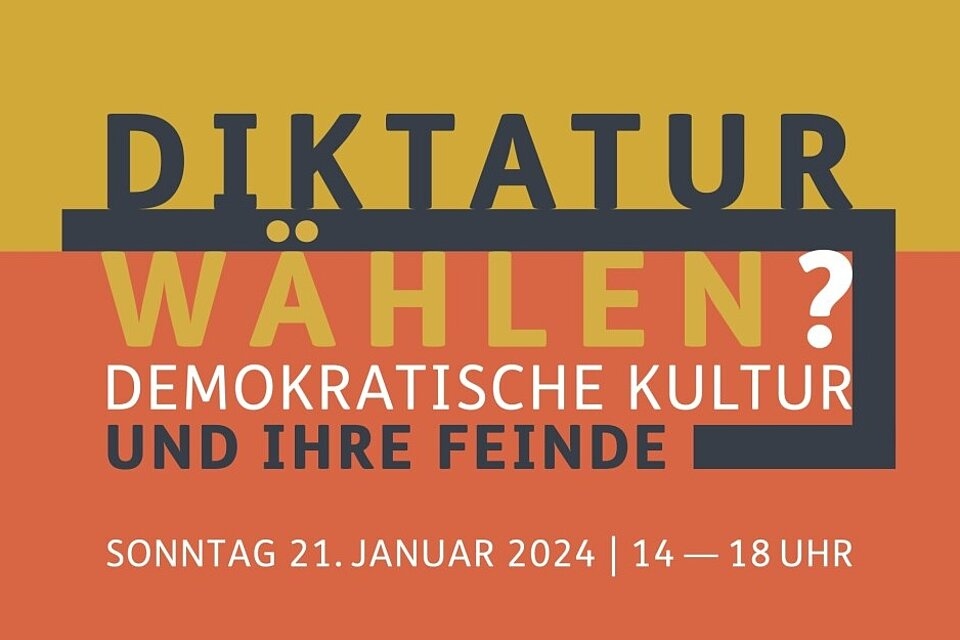
To mark the 82nd anniversary of the Wannsee Conference, the memorial is organizing a panel discussion on the question of what options are available today to counter anti-democratic structures. At the conference on January 21, 2024, Désirée Schauz will join a panel of experts to discuss the topic "From the Weimar Republic to National Socialism: The Failure of the Social Elites".
Read more by clicking here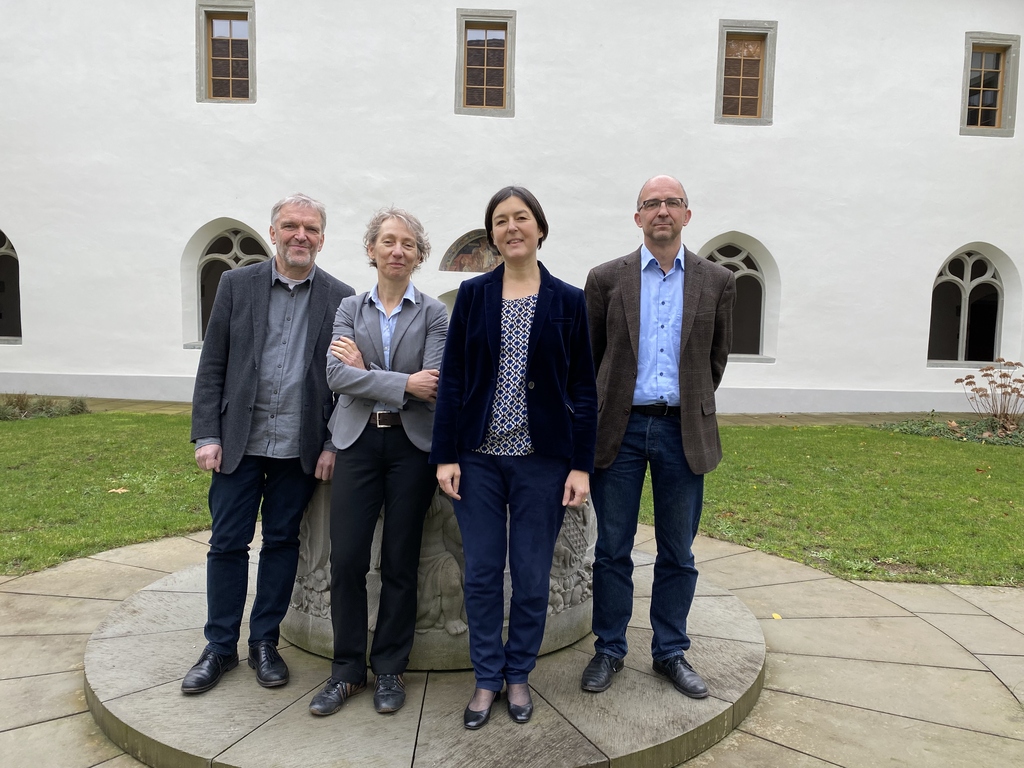
The 43rd History of Technology Conference of the Eisenbibliothek in Schaffhausen/CH was dedicated to the topic "Good, durable, safe. Demands on the quality and safety of technology in history". Marcus Popplow, member of the scientific advisory board (photo) and conference board, and Nicole Hesse represented the KIT Department of History. The latter spoke on issues of safety and efficiency in the use of wind energy. The conference papers are published by the journal Ferrum.
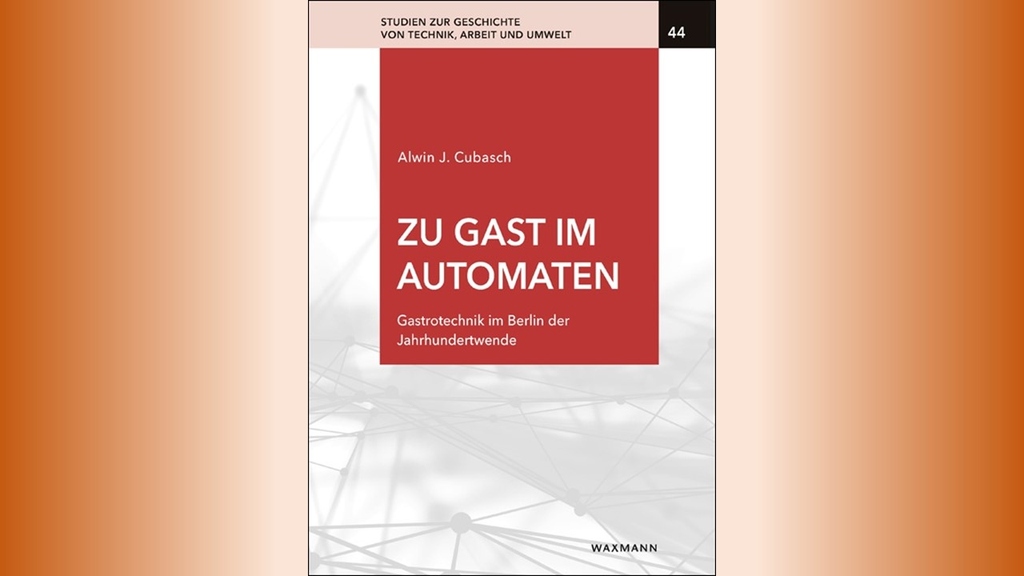
Alwin J. Cubasch's volume illuminates the rise and fall of vending machine restaurants in turn-of-the-century Berlin, shedding light on the scope and limits of technological design motivated during high modernism. The book is published in the series Studien zur Geschichte von Technik, Arbeit und Umwelt, edited by Marcus Popplow and Torsten Meyer.
MoreEvents
Für den Master ans KIT?

Die Veranstaltung richtet sich an Interessent*innen, die ihren Bachelorabschluss an einer anderen deutschen Hochschule erwerben oder erworben haben und sich für ein Masterstudium in Informatik, Wirtschaftsinformatik, Wirtschaftsingenieurwesen oder Digital Economics am KIT interessieren.
Die Zugangs- und Auswahlkriterien werden vorgestellt. Weiterhin wird aufgezeigt, welche Wege es gibt, ggf. fehlende Leistungen für eine Zulassung nachzuholen. Es besteht die Möglichkeit, individuelle Fragen in der Gruppe oder im Anschluss an die Veranstaltung zu diskutieren.
Die Veranstaltung findet in deutscher Sprache statt. Eine Anmeldung ist nur bis 12.00 Uhr am Vortag möglich.
Hinweis: Die Veranstaltung findet über zoom statt. Zeitnah vor Veranstaltungsbeginn wird der Link zum Meetingraum per Email an die bei der Anmeldung benutzten Emailadresse verschickt. Um an der Veranstaltung teilzunehmen, wird ein Laptop, Tablet oder Handy mit Internetzugang, Mikrofon und Kamera benötigt.
Carmen Reck, Studienberaterin
Zentrale Studienberatung (ZSB)
Karlsruher Institut für Technologie
Engelbert-Arnold-Str. 2
76131 Karlsruhe
Tel: 0721 / 608-44930
Fax: 0721 / 608-44902
Mail: info ∂does-not-exist.zsb kit edu
https://www.zsb.kit.edu
pupils
30
